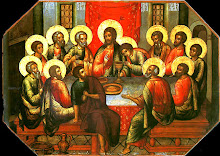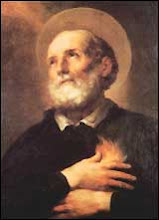In an essay entitled Message in a Bottle the Louisiana novelist and philosopher Walker Percy explained the difference between “information” and “news” with the shipwreck example. In Spe Salvi, Saved in Hope Benedict XVI's recent encyclical on Christian hope, he offers a deeper distinction by contrasting that which is merely “informative” with that which is “performative”. Like Percy's “news”, Benedict's use of the term “performative” emphasizes the efficacy of Christian hope.
Drawing from British philosopher of language J. L. Austin and his theory of “performative utterances”, Benedict proposes that Christians tend to under-appreciate the vitality of their own hope because of habituation, almost as though it were a drug whose effects wear off with time. Due to such habituation, Christians can fail to appreciate the greatness of that in which they hope and therefore sometimes set their sights on a less lofty goal. In doing so, they miss the whole point of Jesus's message. They set their sights on salvation in this world rather than the next. To use the phrase made famous by political philosopher Eric Voegelin, they “immanentize the eschaton”. Hope in this world is no Christian hope.
Although primarily for bishops, Benedict addresses an audience much broader than the Catholic Church. In fact, Spe Salvi challenges nearly everyone on the planet, from agnostic secularists who set their sights on economic development and scientific progress to Marxist revolutionaries, and everyone in between, including Lutherans and neo-pagan environmentalists. Continue reading …
Sunday, December 16, 2007
News, Hope, and A Message in a Bottle
Father Robert A. Gahl, Jr., Associate Professor of Ethics at the Pontifical University of the Holy Cross in Rome, offers an essay on the Holy Father's Spe Salvi.
For the full text of Spe Salvi go here.
Subscribe to:
Post Comments (Atom)








No comments:
Post a Comment